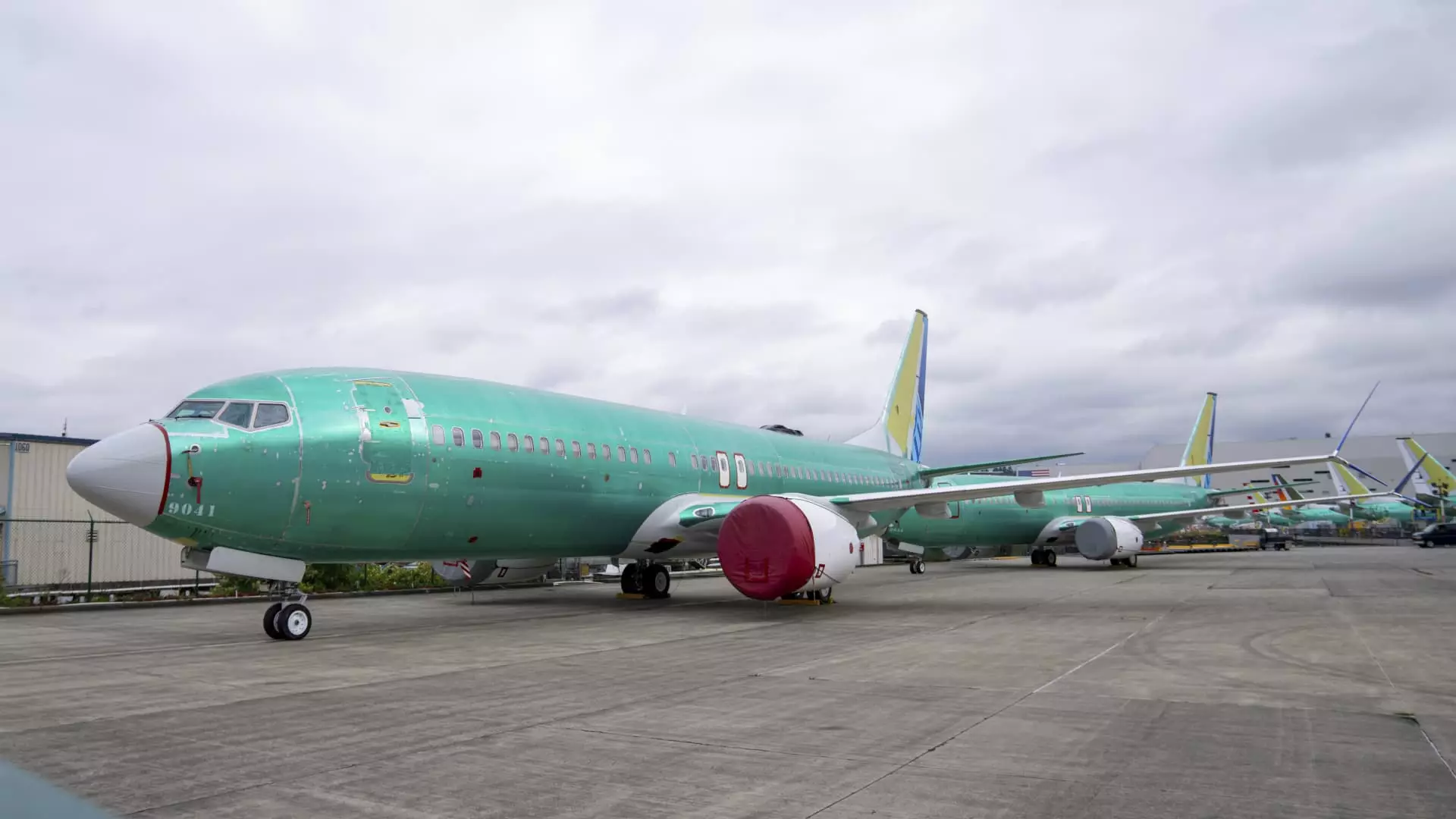Boeing, once a symbol of American industrial prowess, now finds itself amidst a brewing tempest of financial turmoil, labor strife, and operational delays. The company’s latest announcement to cut 10% of its workforce, equating to approximately 17,000 jobs, serves as a stark reminder of the challenges it faces as it grapples with mounting losses and an ongoing machinist strike. With the new 777X wide-body airplane delayed until 2026, the implications of these decisions reach well beyond the assembly lines and into the broader economic landscape.
In a frank disclosure, Boeing revealed an expected third-quarter loss of nearly $10 per share, a stark signal of the company’s precarious financial state. This loss accompanies a staggering pretax charge of $3 billion for its commercial airplane unit and an additional $2 billion for its defense sector, highlighting the depth of the financial crisis the company faces. The official communication from CEO Kelly Ortberg painted a bleak picture, calling the current situation “difficult” and asserting the necessity for “tough decisions” to restore company viability. Such admissions not only reflect poor financial performance but also indicate a broader cultural crisis within the corporation.
Boeing’s operational hurdles have been exacerbated by a labor strike that began on September 13, following the rejection by machinists of a provisional agreement with the company. As the strike extends into its fifth week, the financial ramifications are severe. S&P Global Ratings reports that Boeing could be losing upwards of $1 billion each month due to halted production. This strikes at the heart of Boeing’s operational strategy, as the company struggles to manage labor relations while attempting to maintain a competitive edge in the aerospace market.
The tension between Boeing and the International Association of Machinists and Aerospace Workers escalated when Boeing filed a charge alleging unfair labor practices against the union. This contention illustrates a fractious relationship that may impede collaboration crucial for the company’s recovery. The situation calls for adept negotiation and a renewed commitment from both parties to resolve issues amicably, lest longer-term damage be inflicted on the company’s reputation and operational capacity.
The announced workforce cuts are part of a broader strategy aimed at streamlining operations and cutting costs. CEO Kelly Ortberg’s swift move to scale down the workforce less than three months into his role underscores the urgency of Boeing’s need for structural reform. However, this decision also prompts questions about the future sustainability and morale of the remaining workforce. Will the surviving employees feel secure in their roles, or will the specter of further layoffs loom overhead, fostering a culture of fear rather than innovation?
Additionally, the decision to cease production of the 767 freighters by 2027 after fulfilling existing contracts reflects a strategic pivot intended to focus resources on more promising avenues. However, such decisions necessitate a delicate balance; too much contraction could undermine the company’s capacity to rebound in a rapidly evolving aerospace market.
As Boeing stands on the precipice of significant transformation, the outcome of these recent decisions remains uncertain. The interplay of financial strain, labor disputes, and operational challenges paints a complicated picture for the aerospace giant. The trajectory forward is dotted with challenges and requires astute leadership and a committed workforce if Boeing is to reclaim its status as a leader in the aerospace arena.
Ultimately, the path ahead for Boeing is fraught with uncertainty. While cost reductions and strategic realignments are crucial steps in navigating this turbulent environment, the company must also invest in rebuilding trust within its workforce and among stakeholders. Only through a balanced approach can Boeing hope to stabilize its operations and advance toward a more resilient future.

